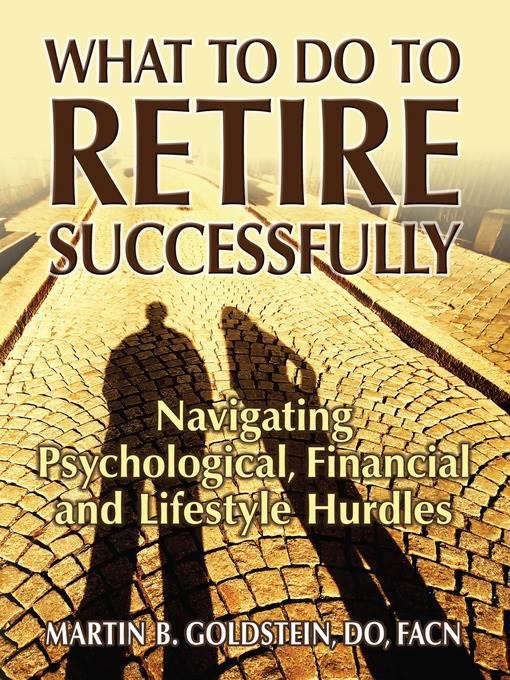
What to Do to Retire Successfully
Navigating Psychological, Financial and Lifestyle Hurdles
فرمت کتاب
ebook
تاریخ انتشار
2015
نویسنده
Martin Goldsteinناشر
New Horizon Pressشابک
9780882824871
کتاب های مرتبط
- اطلاعات
- نقد و بررسی
- دیدگاه کاربران
نقد و بررسی

January 5, 2015
Readers who have ever sat through a well-meaning relative's post-Thanksgiving dinner lecture on the importance of saving for retirement will find this offering from neurophysicist Goldstein all too familiar. Touching on a broad variety of retirement-related subjects, the author attempts to answer every question a trepidatious reader might have while planning for the next stage of life. Goldstein thereby hopes to leave readers with the "psychological, practical and financial formulas for the best ways to achieve desired goals." While a worthy goal, coverage of this scope is a tall order for such a slim volume. He goes over practical suggestions; the new environment in which retirees find themselves; investments and alternatives; lifestyle; the habits of the wealthy; comfortable living arrangements; and occupying yourself as the long work-free hours stretch out into evening. His breadth of knowledge is undoubtedly impressive, but the presentation is hampered by dry writing and the ambition to cover too much in too little space. Readers would be better off with less ambitious - but more focused - guides to help them navigate retirement.

February 1, 2015
As over 10,000 baby boomers are retiring on a daily basis, these two books are particularly relevant. Both founders of their own companies, coauthors of Refire! Don't Retire, Blanchard and Shaevitz encourage readers to make the rest of their lives healthy, joyful, and meaningful, and to use humor, stories, and self-reflection tools as part of that process. In What To Do To Retire Successfully, neuropsychiatrist Goldstein provides solutions to some of the frequent challenges of retirement, such as maintaining a comparable standard of living to before, working in the golden years, and adjusting to a different lifestyle. Goldstein also alerts readers to some of the possible negatives of aging, including vulnerability to crime, ongoing reflections of "what could have been," and loss of identity. Blanchard and Shaevitz's slightly different approach asks readers to take various steps toward becoming physically fit, being of service to the community, venturing into new areas, and so on. Each title gives readers valuable information. What To Do works as a guide book, while Refire! serves as a pep talk. VERDICT These offerings complement each other and present a comprehensive look at retirement.
Copyright 2015 Library Journal, LLC Used with permission.

February 15, 2015
The golden years of American baby boomers, now retiring in droves at 10,000 a day, are extolled by a former neuropsychiatrist, now into his tenth year as a retiree. The problem is, his promises about giving readers a sense of the different types and psychologies of retirees falls flat. He talks in broad generalities about practicalities, investments, lifestyles, and the like, but he gives no checklists or the 10 things you must consider advice. In fact, he uncovers more about his current lifestyle than needed, going into great lengths about his typical day and activities. Who cares? Ignore personal anecdotes; instead, skim his chapters to pull out a personal retirement agenda to think aboutfor instance, the current geo-financial-political environment, debt and taxes, occupations, and funding. His epilogue actually serves as a decent jumping-off point to explore what experts have to say. He contends that retirement has three basic components: a proper place to live, security, and support. Things to think about.(Reprinted with permission of Booklist, copyright 2015, American Library Association.)

























دیدگاه کاربران